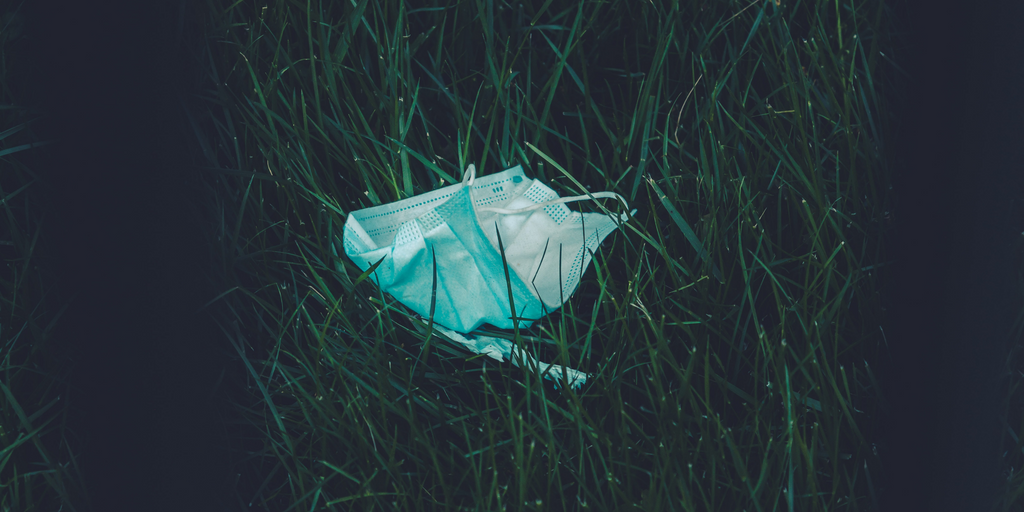Yet another threat to the environment

Disposable face masks and the risk they pose to the planet
Earlier this week, Prime Minister Boris Johnson announced that face coverings will become mandatory once again. In a bid to curb the spread of the coronavirus and its new Omicron variant, people will have to wear face masks on public transport and shops across England, and, after weeks of lessened restrictions, a surge in demand for hand sanitisers is just around the corner. Sadly, neither disposable face masks nor harsh chemicals frequently found in hand sanitisers are particularly good for the environment.

53m face masks thrown away every day
According to the Guardian, a whopping 53 million face masks were used every day in Britain during the height of the pandemic in 2020. That’s 371 million face masks a week. Or 1.484 BILLION a month. Mountains and mountains of face masks are landing in our already overflowing landfills - and that’s if they actually reach them. For many, they don’t even make their way into the bin. Some are carelessly thrown aside, others just blown away while hurrying down the street. Who hasn’t stopped in front of a shop, frantically searching their pockets for a long-lost mask? Whatever the reasons, a number of masks do not go where they belong but make their way into our precious environment instead - in a gutter, a playground, or even in our waterways.
Face masks and ocean pollution
The latter is especially concerning: studies suggest that face masks leak chemicals when submerged in water, which is definitely no good news for marine organisms already having to deal with all the other chemicals and materials we humans dump - either by accident or through carelessness - into their habitats. A study from the Marine Conservation Society found that PPE - Personal Protective Equipment like face masks and gloves - can be found on a third of all beaches in the UK, a number that is similar to 2020. Masks ranked 59 out of 121 for most common litter items, and 80% of all litter picks found PPE in them.
For animals, these numbers can be fatal. Much like other plastic waste, PPE are easily mistaken for prey. Maritime animals like dolphins, turtles and even whales, but also seabirds like seagulls or albatross all too frequently starve to death with their stomachs full of plastic.

Reusable vs Disposable
When it comes to your health and safety, both reusable and disposable masks have their pro and cons. Disposable face masks improve your ability to breathe while also reducing the risk of spreading and catching diseases. The reusable mask, if worn correctly, sits tighter around your face and reduces plastic waste from polluting our environment. At Delphis Eco, we’ve launched a face mask that can do both: our triple-layered mask with SILVERPLUS technology combines ultimate breathability with eco-friendly materials made from 40% recycled plastic bottles. Exchangeable filters and washable materials vastly improve their shelf life, meaning they can easily last you through another pandemic (but we sincerely hope it will never come to that).
How you can help
Remember the PPE shortage hospitals and care professionals faced last year? We don’t want that to happen again, so let’s save disposable face masks for where they’re really needed. Try our Delphis Eco masks with exchangeable filters or support a small business by buying a colourful handmade mask online. If you’re worried about animals potentially entangling themselves in any face mask you have to throw away, make sure to cut through the ear or head loops - that way, that’s one threat fewer to worry about.
Want to try our face masks? Order yours here!
Photography curtesy of Max Bender and Brian Yuratis.

Leave a comment